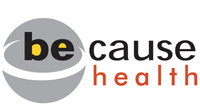
Blog by María Belén Tarrafeta Sayas, Researcher, Chair Working group Access to Quality Medicines / Unit of Pharmaceutical Public Health, Institute of Tropical Medicine, 20 September 2024
A few weeks ago, when the WHO declared a health emergency of international concern due to the rise in mpox cases in several African countries, particularly in the Democratic Republic of Congo (DRC), a troubling inequality began to emerge. While European governments reassured their populations by confirming that they had solid contingency plans, with hundreds of thousands of vaccine doses stored as part of their security strategies, in the most affected African countries, not a single dose was available.
The issue of unequal access to medicines and vaccines is complex. Beyond the economic structural issues between the Global North and South, there is also a disconnect between public health needs and the way the pharmaceutical industry operates, both for generic and innovative medicines. This industry functions largely based on market laws and intellectual property protection. In fact, all countries and regions around the world are experiencing the consequences of this misalignment, which manifests in shortages of both basic and innovative medicines, escalating prices of new treatments that are unaffordable for patients and healthcare systems, and the often overlooked issue of low-quality and falsified medicines.
In recent weeks, international media and various Global Health organisations have addressed the problem of access to mpox vaccines from different perspectives, highlighting various responsibilities and challenges. One key issue has been the regulatory delays by the WHO, which left the mpox vaccine in limbo since 2022, affecting countries that rely on its prequalification system. This delay likely contributed to the failure to contain mpox outbreaks in the Democratic Republic of Congo (DRC) before they spread to other countries, ultimately leading to the declaration of a health emergency. Moreover, the responsibility of wealthier nations in providing donations from their strategic reserves to support containment measures in the most affected countries has also been emphasized.
A few weeks ago, MSF released a statement holding Gavi and UNICEF accountable for the need to negotiate transparently with Bavarian Nordic to secure fair and affordable prices for low- and middle-income countries. Although the WHO has already approved the vaccine, Bavarian Nordic’s potential role in previous delays related to the approval process, as well as in ensuring the production of sufficient doses at reasonable prices, cannot be overlooked. If adequate production cannot be guaranteed, it would be essential for Bavarian Nordic to grant voluntary licenses to enable the production of biosimilars.
Progress has been made in parallel. Europe, Japan, and the United States have contributed vaccine donations coordinated through Gavi, which finally began arriving last week. Meanwhile, Africa CDC, the WHO, the Global Fund, and the governments of affected countries are coordinating prevention and response interventions. Finally, this week, Gavi announced an agreement to purchase 500,000 vaccine doses to be distributed in 2024, although millions more doses may be needed by 2025 to fully address this emergency.
From now on, as long as the epidemic doesn’t take an unexpected turn, the lack of access to mpox vaccines will gradually fade from the headlines. The mpox vaccine will join the long list of other vaccines and medicines that either don’t arrive, arrive partially, or are simply unaffordable. Clear examples include critical medicines such as penicillin, insulin, and morphine, as well as essential vaccines like those for rabies and cholera.
Various Global Health institutions will continue to play a buffering role, providing access through temporary and ad hoc solutions to what are, in essence, structural problems. Perhaps the Pandemic Treaty will manage to change some of the rules when it comes to pandemic threats. However, the deeper issue is whether the international response in global health will continue to focus solely on mitigating global health risks through extraordinary control measures every time there’s an emerging microorganism, or whether we will instead embrace a vision of global health grounded in the right to health. This would mean placing universal health coverage, access to quality medicines, the development of robust healthcare systems, and, when necessary, access to humanitarian aid, back at the centre of the agenda.


